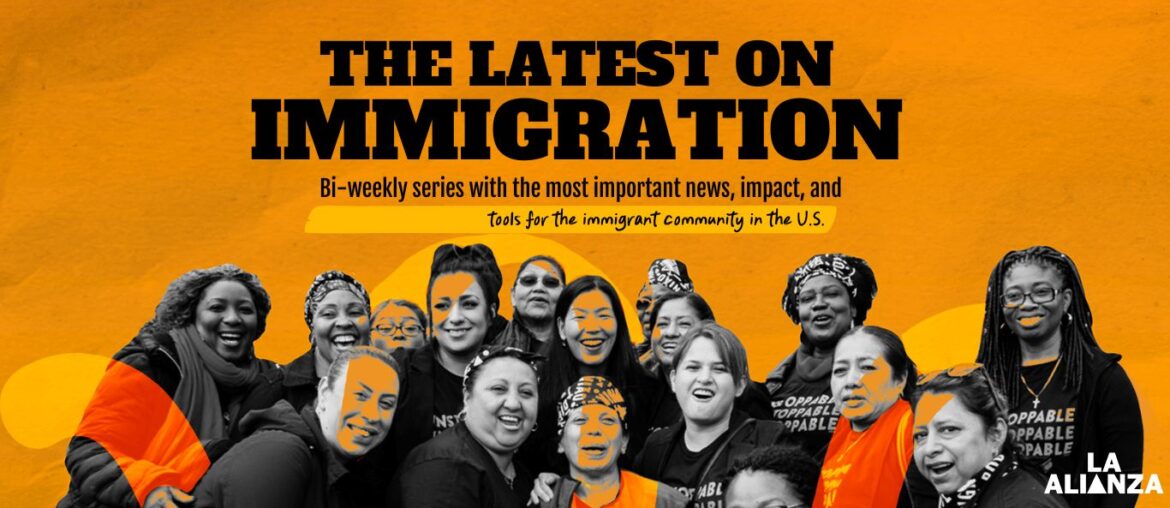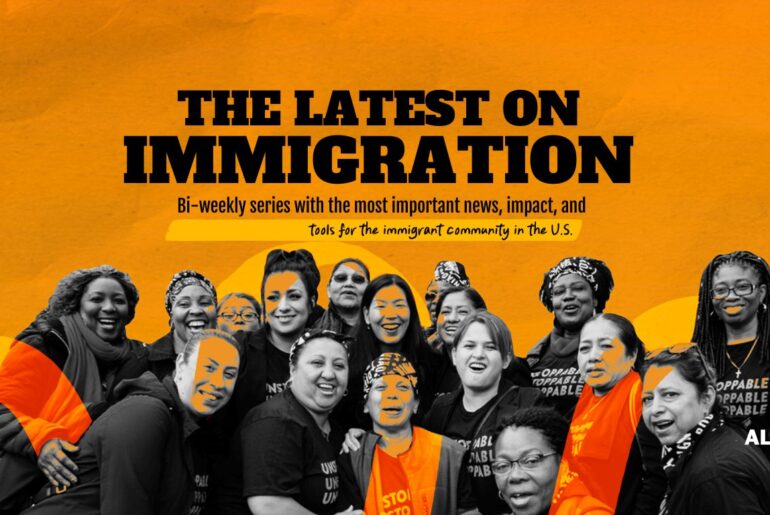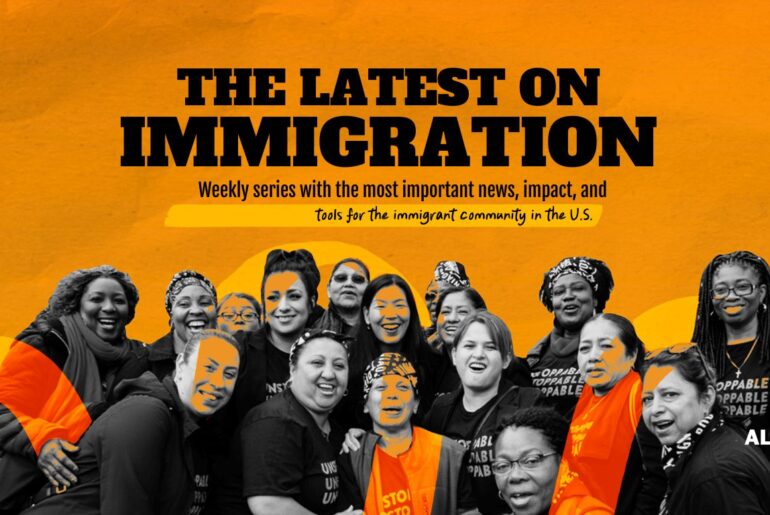In the last weeks of October, the federal government implemented changes that directly impact millions of migrants and workers in the United States. The Department of Homeland Security eliminated automatic work permit extensions, USCIS imposed mandatory electronic payments, and technology companies signed agreements that could facilitate police access to home security cameras. Meanwhile, the partial government shutdown threatens to delay basic services and social assistance benefits.
Recent news
DHS ends automatic extensions of employment authorization
- What we know: The Department of Homeland Security (DHS) announced that it will no longer automatically extend work permits while individuals await renewal. Until now, those who applied to renew their Employment Authorization Document (EAD) could continue working for up to 540 days while the government processed their application and sent them the physical card. With the new rule, this is ending. Starting October 30, 2025, people will have to wait for official approval to continue working legally, even if they submitted their renewal on time.
- Why it matters: The measure could leave hundreds of thousands of people without temporary work authorization during the renewal process, which in recent years has taken several months, leading to loss of income, jobs, and economic stability.
- Who it affects: People applying to renew their work permit (EAD) under programs such as TPS, asylum, or adjustment of status.
USCIS requires mandatory electronic payments
- What we know: As of October 28, 2025, USCIS began requiring paper applications to include electronic payments through the government’s online portal. This policy seeks to modernize the system and avoid delays due to returned checks or rejected payments.
- Why it matters: Although the government argues that this will increase efficiency, many immigrants and domestic workers do not have bank cards or accounts, which could complicate the submission of applications and renewals. In addition, it requires all applicants to be familiar with making online payments, which may not be the case for communities with limited access to technology.
- Who it affects: Applicants for work permits, renewals, citizenship, permanent residency, or change of status who traditionally paid by check or money order.
New agreement allows police to access home camera recordings
- What we know: Security company Ring announced its partnership with Flock Safety, a network of automated surveillance cameras used by law enforcement agencies, opening up the possibility for police departments and even immigration agents to request Ring camera recordings to support investigations.
- Why it matters: According to the ACLU, these types of agreements extend police surveillance into the private space of the home without sufficient safeguards, which could disproportionately affect domestic workers, nannies, immigrants, and communities who work or live in homes with these systems.
- Who it affects: Ring camera owners and people who work or live in residences where such cameras are installed, especially in homes with migrant employees or people in vulnerable situations.
The partial federal government shutdown affects benefits and social services
- What we know: The partial federal government shutdown continues to affect essential programs such as SNAP (food stamps), housing assistance, and immigration case processing. The lack of agreement in Congress has delayed payments and confused beneficiaries.
In terms of immigration, USCIS continues to process applications on a regular basis. However, verification systems such as E-Verify are suspended because they depend on the Department of Labor, which is also closed. - Why it matters: Millions of low-income families, including many with mixed immigration status, could see their access to food or housing disrupted. In addition, the partial government shutdown slows down immigration court appointments and hearings.
- Who it affects: An estimated 42 million people who are beneficiaries of federal assistance programs.
Local and developing news
Changes to the citizenship test could make it more difficult. USCIS announced changes to the citizenship test that include more complex questions on history and civics issues. Experts warn that the new exam may make it more difficult for older people or those with limited English proficiency to become naturalized.
San Francisco: protests after immigration enforcement. After the White House canceled an “immigration enforcement operation” in San Francisco, federal agents carried out isolated raids, sparking protests and clashes with activists. Local authorities denounced the lack of transparency and fear in migrant communities.
Trump replaces ICE leaders with agents from Customs and Border Protection (CBP). Sources at the Department of Homeland Security confirmed that at least half of ICE’s regional directors will be replaced by CBP agents. This decision, part of an “aggressive restructuring,” seeks to increase arrests and deportations in major cities.
The government says it is ready to send more than just the National Guard. During a speech to troops in North Carolina, President Trump said he is willing to “send more than just the National Guard” to cities if local governments “do not cooperate with immigration operations.” His words drew criticism from lawmakers and human rights advocates.
The U.S. is expanding the use of facial recognition to control the entry and exit of people entering and leaving the country. Reuters reported that the government will allow the expanded use of facial recognition technology at airports, ports, and border crossings to control the entry of people, including those under 14 and over 79, in order to reduce expired visas and fraud. However, civil liberties groups warn that photographing people could represent large-scale surveillance and disproportionately affect people of color.
Resources
- Visit the National Domestic Workers Alliance’s “Know Your Rights” platform, which includes immigrant rights, immigration options, a legal aid directory, and more. To access it, visit ndwa.us/immigrant
Note: The National Domestic Workers Alliance is the partner organization of La Alianza - Learn how to recognize fake news about immigration and avoid misinformation with this guide: How to Identify Fake News About Immigration and Avoid Misinformation
Legal Disclaimer: This information is provided for educational purposes and does not constitute legal advice. It is recommended that you consult with an immigration attorney to assess your specific situation.



